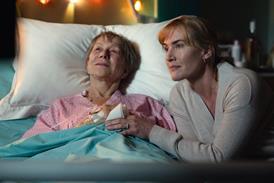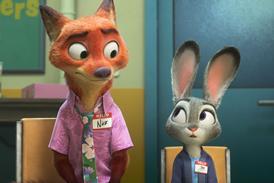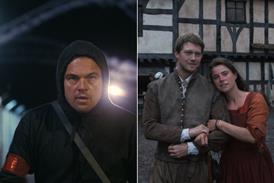Dir: John Curran. US. 2004. 104 mins.
A superlative drama about adultery boasting four courageous lead performances, We Don't Live Here Anymore may not be the ideal date movie but it will still be an attractive draw for smart adult audiences around the world.
Adapted from two short stories by Andre Dubus, the late novelist whose story Killings was previously filmed as In The Bedroom, the film is not as dour nor melancholy as that arthouse hit, instead focusing on the appealing, flawed personalities of its characters and mercifully avoiding the hyper-drama cliches of the adultery-themed TV movie.
Australian director John Curran, whose last film was the 1998 drama Praise, and writer Larry Gross dig deep into two messy, compromised marriages and, with rare subtlety and humour, expose some painful truths about human relationships, their fragility and/or strength.
The actors of course do a lot of the work. Laura Dern and Mark Ruffalo are both outstanding as the couple who occupy the film's main focus, and Peter Krause and Naomi Watts as the secondary couple with whom they are intertwined offer fine support. Warner Independent Pictures, which bought the film after its Sundance world premiere recently, plans to release it on Aug 13 in North America and the performances, Dern's in particular, will certainly be under the awards spotlight as the year comes to a close.
Jack (Ruffalo) is a college professor and a loving father whose longing for his wife Terry (Dern) is on hiatus and who is engaged in a passionate, guilt-ridden affair with the wife Edith (Watts) of his best friend Hank (Krause).
The story begins at a dinner party at Jack and Terry's house where drinks have been flowing freely. Jack and Edith go off together to get more liquor and steal some kisses, leaving Hank to make a pass at Terry.
The film which follows the party builds up the picture of unhappiness in each of their lives from different perspectives: it captures the relief Hank feels that his wife is cheating on their loveless marriage, the frustration and anger which Terry feels at Jack's infidelity and her growing attraction to Hank; the guilt and cowardice which leads Jack to push Terry towards Hank and the quiet patience which Edith exhibits at the end of her marriage. Something's got to give.
There is little revelation or hysteria in We Don't Live Here Anymore, a fact which gives it a reek of authenticity but also which serves to limit the gloom which audiences traditionally suffer in similar dramas (21 Grams or The House Of Sand And Fog, itself written by Dubus' son Andre Dubus III). Using a jaunty, sparing classical score by Lesley Barber and some bright rural landscapes, Curran opts for humanity over despair.
One hiccup in the adaptation of the stories published in 1977 and 1984 respectively is the depiction of the two women as housewives and home-makers, dependent on the two men for their income. The actresses playing the parts are such vibrantly intelligent, contemporary women that it feels highly unlikely that they wouldn't be working mothers in 2004.
Prod co: Front Street Pictures, Renaissance Films
US dist: Warner Independent Pictures
Int'l sales: Renaissance Films
Exec prods: Ruth Epstein, Mark Ruffalo, Larry Gross
Prods: Harvey Kahn, Naomi Watts, Jonas Goodman
Scr: Larry Gross, from the short stories We Don't Live Here Anymore & Adultery by Andre Dubus
Cinematography: Maryse Alberti
Production des: Tony Devenyi
Ed: Alexandre De Franceschi
Music: Lesley Barber
Main cast: Mark Ruffalo, Laura Dern, Peter Krause, Naomi Watts


















No comments yet